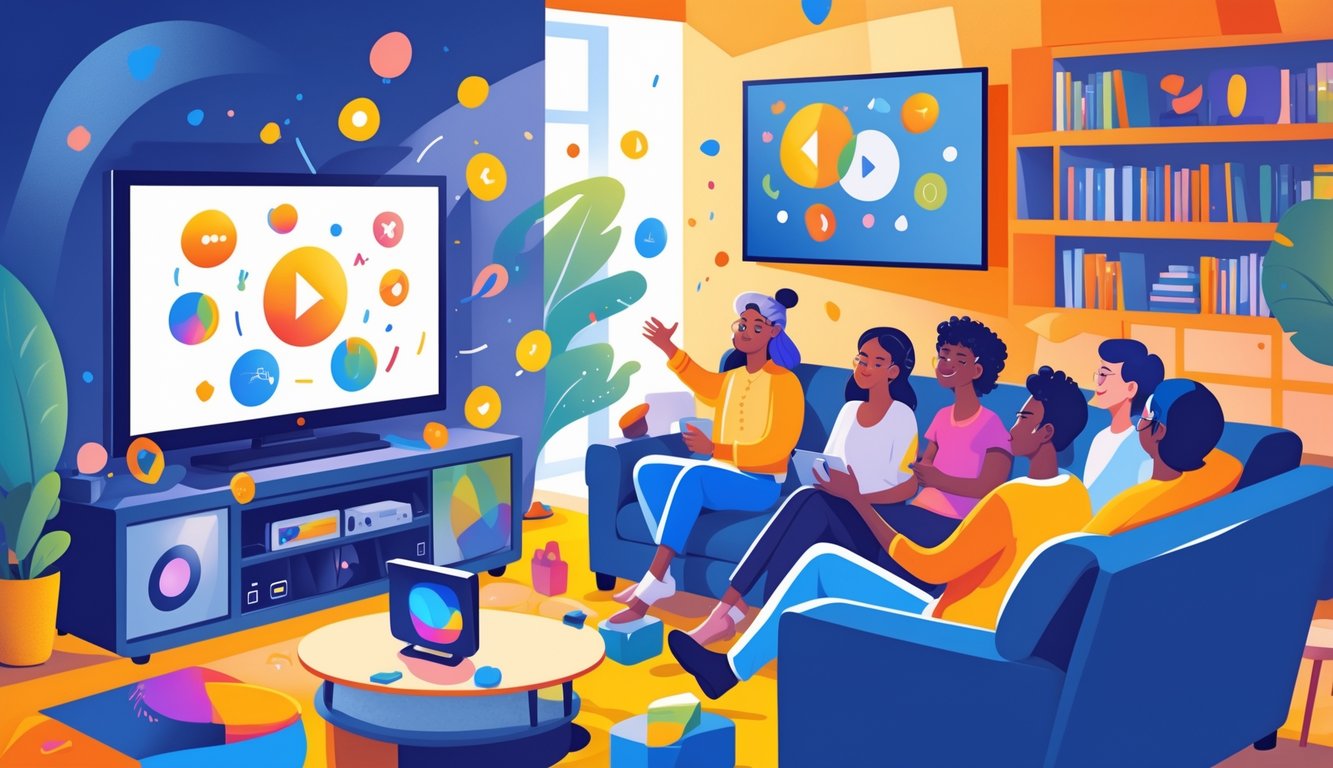
The Future of Originals: Trends and Predictions
Executives fumble spreadsheets while viewers bail for smaller screens. If Starz gets a hit with one gritty show, why’s CBS still dumping millions into another generic crime series? It’s like they’re surprised when only my uncle tunes in. The shift isn’t dramatic—it’s just that moment when your remote dies mid-cliffhanger. Obvious, but also kind of funny.
Impact on Big Networks
NBC keeps hyping Peacock exclusives. Is anyone watching besides soccer fans? Fox, ABC, all of them, scrambling. Ad revenue’s a mess, every guild spokesperson is whining about “fragmented attention.” Here’s the kicker: Netflix’s original content share dropped to 24.9% for their top 25 shows, Q1 2023. Not a rumor, just cold stats.
So CBS shovels money into Paramount+ for stuff nobody’s heard of. HBO Max tries to merge DC originals and I can’t keep track of what’s where. Nickelodeon sneaks cartoons into every streaming bundle, hoping kids won’t notice they’re not on cable.
Viewership Trends Moving Forward
At a Starz event, someone said, “Niche is the new mainstream.” Maybe? My cousin subscribes for one show, then bounces. Paramount+ and Peacock drop exclusives faster than anyone finishes a free trial. It’s both funny and exhausting. People I know jump to smaller networks for oddball originals, ignoring big hits like “Stranger Things.” That’s not a fluke. The rise of streaming originals is pushing Hulu, Amazon, Apple TV+ to get weirder.
Now it’s all split up—one person obsessed with an HBO Max mini-series, another bouncing between network apps just for one quirky show. It’s a buffet. Nobody sticks with one network all year. I laugh every time someone in a focus group claims “exclusive premieres” matter. Most people are just chasing the next viral niche, usually missing it because the calendar keeps shifting. And Peacock’s “live events” for originals? Just another login I’ll forget.
Frequently Asked Questions
Forget big-budget sets for a second. I keep stumbling into weirdly inventive projects, offbeat writers—stuff that never survives mainstream network notes. There’s always some hidden gem hiding on an underdog platform, quietly reaching global or niche crowds.
What makes smaller networks a hidden gem for original content?
While everyone’s distracted by giant marketing budgets, I’m scrolling through smaller streamers finding they’re stacking catalogs with oddball series nobody else would risk. This global demand breakdown says regional platforms like Zee5 or SonyLIV are winning not by copying hits, but by betting on hyper-local stories and weird genres.
A programming director once told me, “We’ve got no IP to rubber stamp, so why not just make something different?” I watched a Hotstar food docuseries that brought in philosophy professors. It was weird, but oddly great.
How does watching shows on smaller networks differ from popular ones?
It’s not just less “polish”—sometimes the scripts are looser, more real. Netflix drops another algorithmic thriller and meanwhile, these other platforms are pushing shows with slow-burn characters and no need to tie up every loose end for mass appeal.
I know people deep in Indian thrillers nobody in my group’s heard of, ranting about tiny plot twists. If you want hyper-curated spectacle, fine, but underdog shows often hit way harder.
What are some unexpected benefits of exploring lesser-known TV networks?
Ad breaks are either suspiciously short or replaced by the best local, low-budget commercials. But really, it’s about finding unreleased pilots, extra interviews, or regional subtitles you’ll never see on the big services.
A friend in Berlin found a micro-budget series translating Berlin street slang into four languages—he started texting me vocab every day. Plus, your watch history is more private (I heard that at a cybersecurity seminar). And you avoid algorithm fatigue.
Why are people switching to alternative networks for unique shows?
I got tired of recycled remakes, clicked into JioCinema after a random YouTube thumbnail, and ended up binging a mockumentary about pet sitters during Diwali. People are just burned out on bland programming, and platforms like Facebook Watch and Hoichoi are seeing the shift.
Nobody says it out loud, but you get these passionate online groups, sharing screengrabs and digging up Easter eggs. Plus, smaller platforms don’t geo-block as much, so I was watching originals in Europe my cousin in New Jersey couldn’t even find.
Can choosing smaller networks over mainstream ones enhance your viewing experience?
Okay, look, I tried watching this big-budget cop show on one of those big channels—fell asleep, like, halfway through. Not even kidding. Then I wake up, flip to Discovery+, and suddenly I’m three episodes deep into some sci-fi series that, honestly, made zero sense. But I cared? About these totally random characters? I don’t know, maybe that’s just me. My old media studies professor—who probably owns, like, three cats—used to rant about how “small outlets fuel the next wave of industry breakthroughs.” Yeah, sure. Nielsen’s got stats about broadcast networks and streamers coexisting, which sounds official, but I’m still not convinced anyone knows what audiences actually want. Maybe people just like being surprised.
Convenience? Meh. I’d rather skip the algorithm’s top picks and go hunting for some bizarre subplot or, I don’t know, spot a really terrible green-screen moment. That’s half the fun. Who cares what’s trending? Oh, and the credits—there’s always some random name in there who’ll be a star in, like, three years. I keep telling myself I’ll pay attention, but nope, never happens. Maybe nobody does.
How do smaller networks manage to deliver compelling and original programming?
Honestly? Probably because there aren’t twenty execs nitpicking every frame. I literally ambushed this showrunner at some festival (was it Austin? Or Toronto? I forget) and blurted out, “Why’d you ditch cable for this tiny outfit?” He just shrugs: “No brand committees breathing down my neck.” I mean, fair. And let’s be real, streaming’s weird content land grab is shoving everyone into riskier territory, so suddenly all these little platforms get weirdly brave.
But, wow, sometimes you can really tell they’re winging it. The production quality? All over the place. Cast choices? Sometimes it’s like, who is this for? Plotlines just… go wherever. And yet, there’s always this handful of super-fans on Twitter dissecting every ridiculous twist. My agent keeps muttering stuff like, “If you want safe money, pitch to the big guys; if you care about not hating yourself in five years, try the weirdos.” She’s probably right. Or not. Who even knows anymore?



